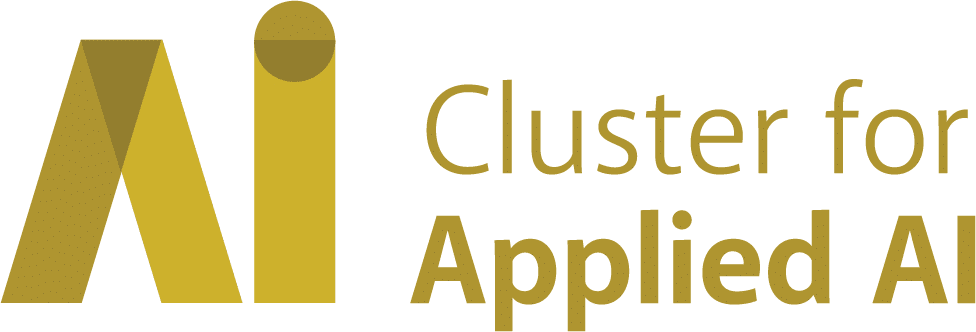
NATIONAL KI STRATEGY: Much good has happened in the last two years, but the authors of the article believe Norway is still far behind other AI nations.
By Trym Holter (Norwegian Open AI Lab), Eirik Andreassen (Digital Norway), Marianne J. Bjerkman (Cluster for Applied AI) and Birte Malene Tangeraas Hansen (NORA), January 14, 2022
The authors of this op-ed represent stakeholders working together to make Norway an AI nation. We are ready to coordinate more work to ensure that the public and business sectors are enabled to exploit the value creation potential of AI technologies and solutions in collaboration with the research and education sectors.
- READ ALSO: Norway as an AI nation - what will it take?
What can we achieve with artificial intelligence?
Artificial intelligence (AI) is a technology that solves a type of problem that was previously assumed to be solved by humans. AI now plays a key role in various types of automation and therefore helps to solve tasks more efficiently. One example is the automatic reading of license plates, which makes the parking attendant's job much easier.
At the same time, AI contributes to better quality products and services (AI systems can interpret X-rays more accurately than the doctor) and better tailored to the individual user (recommender systems and precision medicine). AI is also a prerequisite for uncovering patterns and creating insights from the vast amount of data available to us in today's sensor society - something that is not possible for the human brain or solutions based on more traditional technologies.
AI will play an important role in addressing some of the biggest challenges we face as a society.
Clearer specification of the AI strategy
Several positive measures have undoubtedly been initiated since the government launched the national AI strategy in January 2020. These include two new centers for research-driven innovation (SFIs) in AI led by NTNU and UiT respectively, the Data Factory under the auspices of Digital Norway and DigiDir, the Norwegian Data Protection Authority's Sandbox for responsible artificial intelligence, and the award of arena status to the Cluster for Applied AI.
However, it is not clear how these and other measures are part of a systematic effort to make Norway an AI nation. We therefore call for a clear action plan for how the AI strategy will be followed up.
In addition, we note that ownership of the AI strategy has become less clear to outsiders since it was launched by the then Minister of Digitalization Nikolai Astrup. This is partly due to several changes in the names of ministerial posts and ministries during the period. Digitalization is a key factor in the development of society, and if we are to succeed in this, we need stimulation, joint solutions and stronger coordination across areas of use, sectors and administrative levels. We therefore believe that Norway should have a separate Minister of Digitalization with responsibility for both digitization of the public sector and for instruments for increased use of AI and other advanced digital technologies in the private sector.
It is crucial that industry is given better framework conditions to strengthen its innovative capacity, not only to apply but also to develop AI-based solutions. This is an industry that has great export potential if the conditions are right.
Access to data and collaboration
AI is developed based on large amounts of data. This gives Norway a unique opportunity. Norway has large amounts of data in many areas. In combination with trust, this creates fertile ground for cooperation. An expert group has recently been established to present proposals for guidelines and measures concerning responsibility, ownership and rights of use in connection with the sharing of industrial data in industry. We hope this will be a concrete and positive contribution that stimulates stakeholders to exchange data to a much greater extent than before.
We also believe that it is important to further strengthen the framework conditions that create good cooperation between innovation environments, businesses, universities, research institutes, the public sector and investors. For example, the public sector should take an active role through the use of innovative public procurement and public/private cooperation to create a larger domestic market for solutions based on AI.
Platforms for cooperation and funding
Artificial Intelligence has great potential to create sustainable jobs and solutions in Norway, but to achieve this, service development and collaboration between companies, networks, clusters and catapult centers must be facilitated. The new European Digital Innovation Hub (EDIH) scheme must be fully funded. The EDIH mechanism is designed to support small and medium-sized enterprises and the public sector with digital transformation, and its funding is intended to be shared between the European Commission and national governments.
Unfortunately, the signals we have received are that Norway will not fund its half share. This puts the broad constellation coordinated by Digital Norway, which is applying to establish a Norwegian EDIH in the field of AI, in a difficult situation.
The EDIHs are an instrument that Norwegian businesses have been waiting for. We now hope that the government knows its time and that national funding for the scheme is put in place.
Competition for skills
Employers in business and the public sector have a pressing need for AI-competent workers. The field is growing within Norwegian universities, but it is slow compared to the explosive growth globally and does not reflect that AI should be a priority area in the Norwegian context. We believe that Norway educates too few people with broad and cutting-edge expertise. Another challenge is that the proportion of women is too low.
We recommend that a clear and long-term program for KI be established, which should include specific points for strengthening research and education. Funding for research and education in AI should be structured to create focused environments. And not least, there is a need for funding and adaptation of continuing and further education for industry within AI.
We see a need and a clear desire among Norwegian universities, university colleges and research institutes for more specific measures to strengthen research and education in artificial intelligence. This could include earmarked funding for research schools and for the universities' infrastructure for skills enhancement and computing power in artificial intelligence.
How we will contribute
The "Norwegian national team" for artificial intelligence, represented by the Cluster for Applied AI, the Norwegian Artificial Intelligence Research Consortium (NORA) and the Norwegian Open AI Lab, are now joining forces to map the exciting landscape of Norwegian start-ups related to AI.
This is part of a European collaboration with Sweden, France and Germany that will, among other things, help to make Norwegian companies more visible both nationally and internationally.
The ambition is also to stimulate further collaboration between actors representing the academic and commercial perspectives, as true value-creating innovation often originates from research.
THE AUTHORS:

Trym Holter, Director of the Norwegian Open AI Lab (NAIL)
Norwegian Open AI Lab (NAIL) is a center for research, education and innovation in artificial intelligence. Located in Trondheim and hosted by the Norwegian University of Science and Technology (NTNU).

Eirik Andreassen, Coordinator for EDIH, Digital Norway
Digital Norway is a non-profit founded in 2017 by 15 committed business actors to accelerate the digitalization of Norwegian business, with a special focus on small and medium-sized enterprises.

Marianne J. Bjerkman, Cluster Leader of the Cluster for Applied AI (CAAI)
CAAI will help Norway to take a leading position in the profitable and sustainable use of artificial intelligence (AI) in a business context. The industry cluster is suitable for actors who are currently developing or using AI, or who have decided to do so.

Birte Malene Tangeraas Hansen, Innovation and Industry Coordinator, NORA
NORA (Norwegian Artificial Intelligence Research Consortium) is an association of eight universities, three university colleges and four research institutes that collaborate in the field of artificial intelligence with a common strategy to strengthen Norwegian research and education in the field. NORA is also an active driving force for education, business and start-up companies in the field of artificial intelligence.
